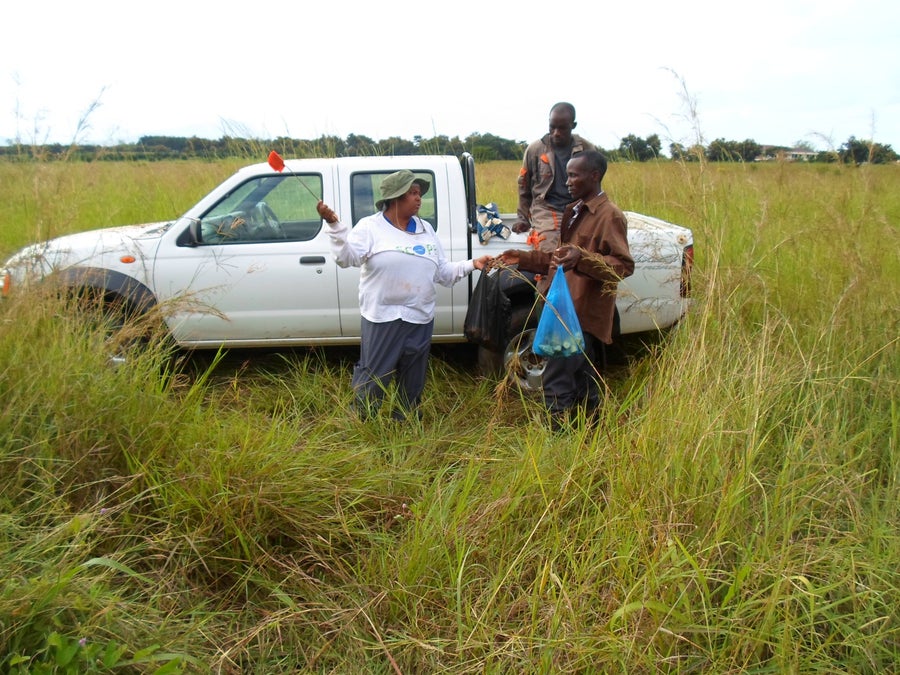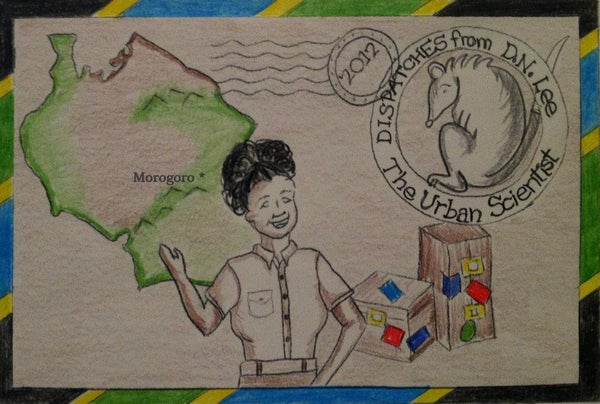This article was published in Scientific American’s former blog network and reflects the views of the author, not necessarily those of Scientific American
Three weeks in and I'm back in the field - trapping. The heart and soul of the work I do in Tanzania is the Capture-Mark-Recapture study. I am fortunate enough to work with some of the most experienced pest researchers and pouched rat experts the world. These amazing individuals don't get the credit they deserve.

Me, holding marking flags talking with my team before we bait and set traps in one of our shamba grids. In the truck: Shabani Lutea - this man is the most experienced pouched rat natural history person in the world. He literally is a rat whisperer. Standing: Genithon Mhampfi - he's a researcher studying various rodent pest abatement techniques.
These men keep the "lights on" if you will, with this study when I'm in the States. I'll be sharing more about the great work they and other scientists in my host department, Pest Management Center of Sokoine University of Agriculture, during my #AfricanSTEM highlights.
On supporting science journalism
If you're enjoying this article, consider supporting our award-winning journalism by subscribing. By purchasing a subscription you are helping to ensure the future of impactful stories about the discoveries and ideas shaping our world today.
Follow along in real time (well, 7-10 hours ahead of U.S.) on Twitter @DNLee5 and #DispatchesDNLee on IG DNLee5. All the fun, all the food. All of the Adventures! LOL.
For now, check out my amazing and itch-tastic Week 3 in the field. My amazing social media intern puts these Storify recaps together. Be sure to follow her too on Twitter (@Intheknowshow)
